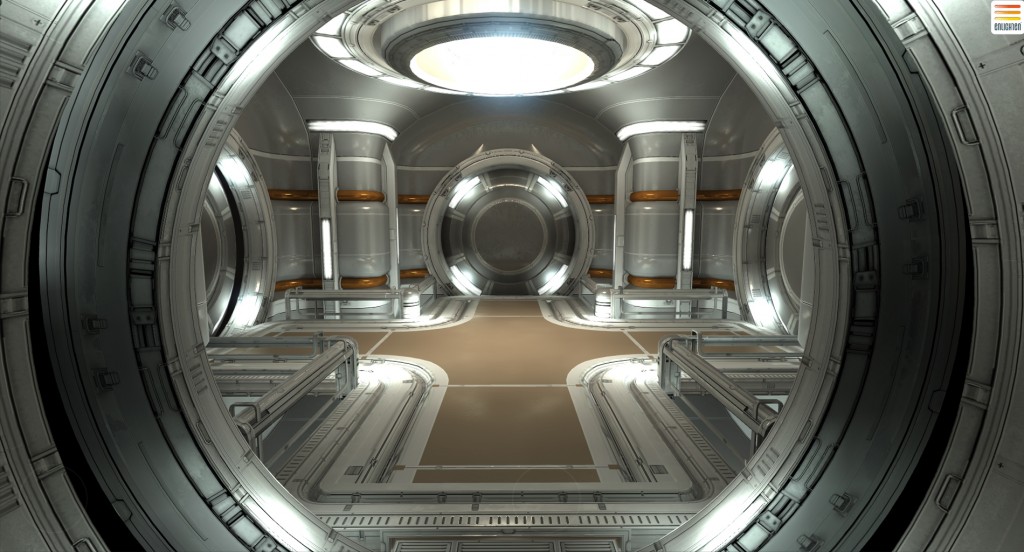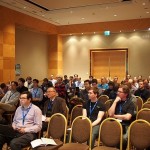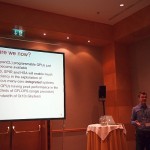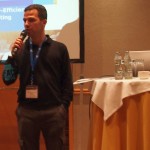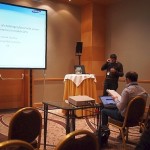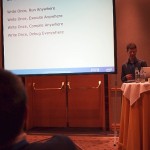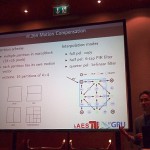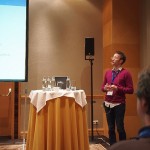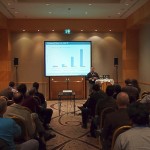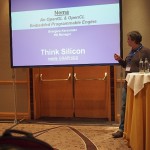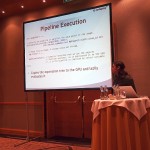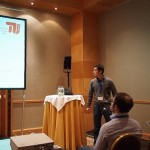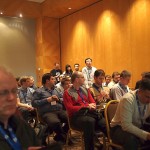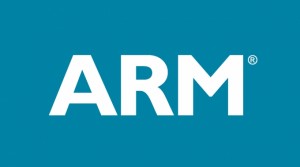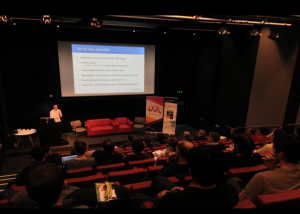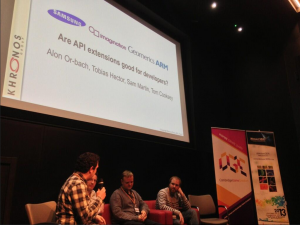LPGPU2 will be attending the 12th annual HiPEAC conference which will be held on the 23rd-25th January at the Waterfront Congress Centre in Stockholm, Sweden. Representing LPGPU2 at this years conference will be Prof. Ben Juurlink, Professor for Embedded Systems Architectures, TU Berlin. Prof Ben Juurlink will be taking part in the PEGPUM: Power-Efficient GPU and heterogeneous Multi-/Many-core Computing workshop on the 24th January – 10.00am – 17.30pm in Room 27, Waterfront Congress Centre giving an update on the LPGPU2 Project.
Author Archives: Codeplay
LPGPU2 are attending HiPEAC 2017
Codeplay Accelerates Machine Learning with SYCL and TensorFlow
Machine learning is being adopted by more and more companies for a wide range of artificial intelligence applications such as image recognition and self-driving vehicles. Machine learning involves running large data sets through a software program in order to train the software to build its intelligence. One of the biggest challenges facing developers building software that incorporates machine learning is in processing the huge amounts of data required for training their programs. By using GPUs, developers can vastly increase the amount of data that can be processed whilst also reducing the overall power consumption by running calculations in parallel.
Uppsala paper accepted in HPCA 21, 2015
Hierarchical Private/Shared Classification: the Key to Simple and Efficient Coherence for Clustered Cache Hierarchies
Alberto Ros and Stefanos Kaxiras
Talk on programming models for heterogeneous systems in Kista, Sweden
Andrew Richards, CEO of Codeplay, will be giving a talk on designing heterogeneous programming systems at Multicore Day 2014 in Kista, Sweden on October 8th 2014. Engineers can achieve huge performance improvements and power savings by accelerating software on a range of processing cores in a system. But, different processor cores can have very different architectures that make integration of such systems hard. In Codeplay’s research in projects such as LPGPU, we have found that standards-based approaches make integration of different technologies easier. But what standards should engineers use, and how can they work together?
This talk will discuss the existing standards, how they can work together and how engineers can integrate these different standards together into a single, easy-to-use programming model for software developers to use.
LPGPU and Sycl at the Game/AI Technology Workshop
At the Game AI Conference 2014 held in Vienna/Austria , Codeplay Ltd. and AiGameDev.com KG teamed up again to deliver multiple talks about applying OpenCL and SYCL to creating massively parallel AI. The presentations by Bjoern Knafla (Codeplay), Gordon Brown (Codeplay) and Alex Champandard (AiGameDev) were featured on the first day the conference as part of the Technology Workshop on July 7th, to a sold-out audience of some of the best developers from Europe and beyond.
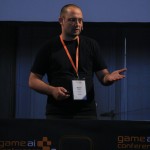
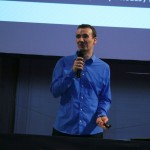
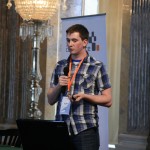
AiGameDev.com and Codeplay Present Massively Parallel AI at GDC 2014

At the Game Developers Conference 2014, both Codeplay Ltd. and AiGameDev.com KG gave a presentation about applying OpenCL and SYCL to creating massively parallel AI. This joint talk by Alex Champandard and Andrew Richards was featured on the first day of the AI Summit, in front of a room of approx. 300 developers.
Geomerics announce Enlighten adoption in Unity 5 at GDC
Geomerics attended the yearly Game Developers Conference in San Francisco recently where it was announced that the popular game engine, Unity, will use Enlighten as it’s lighting technology from Unity 5 onwards. As part of this Geomerics showed the “Transporter” demo using an early build of Enlighten in Unity running on a Samsung Note 10.1.
You can find a video of the announcement talk on the GDC Vault here.
The release of Unity 5 will be the first release of the Enlighten on mobile work started as part of the LPGPU project in a commercial game engine.
Reflecting on the 2nd PEGPUM Workshop at HiPEAC 2014
The LPGPU project organised the second LPGPU Workshop on Power-Efficient GPU and Manycore Computing (PEGPUM 2014) in conjunction with the HiPEAC 2014 Conference in Vienna on January the 20th, 2014. The main objective of the event was to foster dialogue and interaction among researchers from academia and industry working in aspects of low-power, heterogeneous many-core systems; including hardware architecture, programming models and software design.
- Delegates of the PEGPUM 2014 Workshop
- Simon McIntosh-Smith from the University of Bristol (UK)
- Mauricio Alvarez-Mesa from TU Berlin
Based on the succesful experience of last year’s PEGPUM 2013 in Berlin, the 2014 workshop was extended from a half-day to a full-day event, consisting on 12 presentations: 6 of them from partners of the LPGPU project; and the other 6 from external academic and industrial researchers.
- Prashant Sharma of Samsung R&D Institute, UK
- Ayal Zaks of Intel Corporation, Israel
- Biao Wang of TU Berlin
More than 70 people attended the workshop, and many fruitful online and offline discussions developed. Incidentally, the concept of colocating an EU project workshop with HiPEAC was pioneered by the earlier Peppher project.
- Sam Martin of Geomerics
- Alex Ramirez of Barcelona Supercomputing Center, Spain
- Georgios Keramidas of Think Silicon
This edition of the workshop helped to promote exciting developments in the LPGPU project among the industrial and academic delegates present; either at the workshop, at HiPEAC, or both. Highly engaged participants demonstrated an increasing level of interest in the research topics covered by the project.
- Ralph Potter of Codeplay Software Ltd.
- Chi Ching Chi of TU Berlin
- Delegates of the PEGPUM 2014 Workshop
The website for the LPGPU PEGPUM 2014 Workshop here has now been updated with links to the slides which accompanied each talk.
ARM Acquires Geomerics
ARM today acquired Geomerics, one of the LPGPU consortium members and developer of Enlighten. Geomerics and ARM have been collaborating on efficient mobile rendering technologies as part of Task 3.6, and presented their work at SIGGRAPH earlier this year. The acquisition expands ARM’s position at the forefront of the visual computing and graphics industries. Additionally, the agreement enables Geomerics to build on their existing partnerships as well as accelerate their development in mobile.
Read the full press release here, and the FAQ here.
On-chip deferred lighting talk at Mosaic3DX
Cambridge recently had the fortune to host Mosaic3DX, a new conference for graphics across a range of markets. Co-located with Mosaic3DX was the Khronos UK Chapter meeting, organised by Samsung R&D UK. Sam Martin from Geomerics was invited to present the on-chip lighting research undertaken during the second year of the LPGPU project in collaboration with ARM. The research demonstrated the use of two novel OpenGL ES extensions developed by ARM to bring console fidelity lighting to mobile devices.
While in town, Geomerics also joined in a panel session with representatives from Imagination Technologies and ARM to discuss the benefits and downsides to API extensions. Are they good for developers? We believe so!

